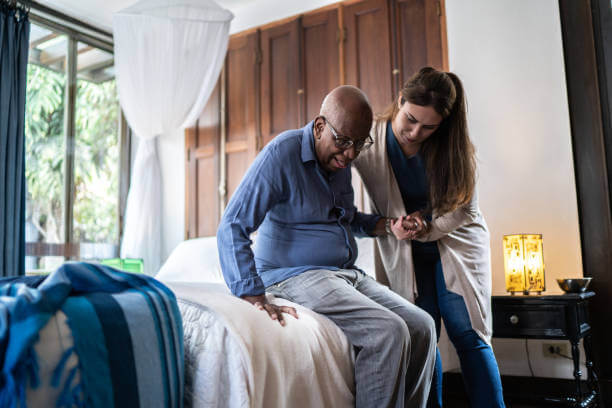Senior care can be very complicated, as it not only involves providing physical and emotional care but also requires family members to confront the realities of aging. When the tables turn and adults must begin caring for a parent, it reminds all of us that this is part of the cycle of life. As my uncle often would say, birthdays are good even if they mean you are growing older because the only way not to have them is to die.
Family members who become caregivers know the challenges of working as a senior caregiver at the same time as being a daughter or son or niece or nephew. This is why many times family members will choose to hire an outside person to be a caregiver. This is often a need out of necessity, when a senior requires around-the-clock care or develops memory loss.
Professional senior caregivers receive caregiver training to manage to the activities of daily living for a senior and to understand the emotional issues that come along with aging. Basic caregiver training includes learning first aid skills and how to effectively communicate with a senior. Many states are beginning to pass legislation to require licensed senior home care agencies to perform training that consistently meets minimum standards. The state of Illinois began requiring 8 hours of training in 2008.
Caregiver training modules that meet the minimum caregiver training standards include:
- Duties of a Caregiver
- Communicating with Others
- Observation, Reporting and Recording
- Providing Personal Care
- Promoting and Maintaining Good Mobility
- Elimination and Toileting
- Infection Control
- Environmental Hazards and Safety
- Basic First Aid
The first step when becoming a senior caregiver for a family member is understanding the job duties and the necessary caregiving job skills. You may take a 10-hour online caregiver course that meets the basic training requirements in states such as Illinois.
View the caregiver job description for professional caregivers as a starting point for becoming a caregiver. Many times people who have worked as family caregivers will become professional caregivers as part-time caregivers for seniors with memory loss as this can be very fulfilling work.
Caregiverlist provides the daily costs of nursing homes nationwide which also allows family caregivers to understand the costs of senior care.







